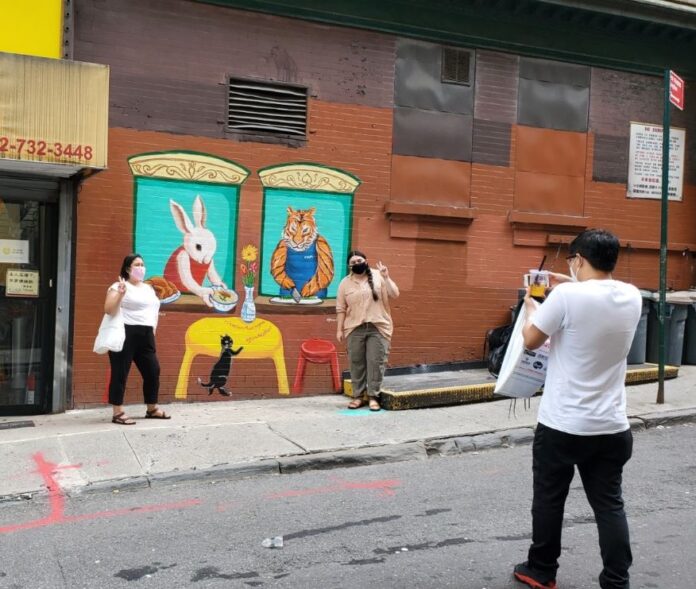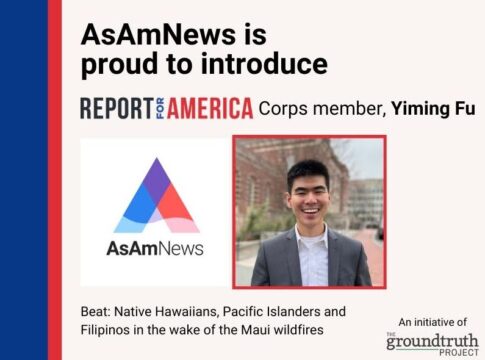By Curtis S. Chin
WASHINGTON, DC—Due to the pandemic, I have not been able to make my way back to Seattle for a semi-regular gathering of the extended Chin family from across the Pacific Northwest
For some institutions like the newly re-opened Wing Luke Museum in Seattle’s Chinatown International District, however, I have been able to enjoy the digital content from the comfort of my home in Virginia, outside of Washington, D.C.
The virtual tours, information and history lessons about the Asian Pacific American Experience offered up by the Wing Luke Museum could certainly be of great value to many of our leaders here in our nation’s capital. The Wing Luke’s exhibits underscore and puts into context the horrific attacks on Asian Americans increasingly being reported on—regardless of if they were captured by security cameras or bystanders with smartphones.
As greater awareness has been raised about anti-Asian violence in the United States, there is now talk of congressional hearings and resumed efforts to pass legislation to bolster federal aid to localities for hate-crime reporting and training.
LATEST STORIES
That should be welcomed by and supported by all parties and individuals.
It is time to move beyond the hyper-partisanship of last year’s presidential year which helped doom bicameral action on past efforts to call out and to fight hate, including a resolution (HRes908) denouncing COVID-19 racism toward Asian Americans .
It’s been nearly three decades since so many images of anti-Asian violence in America have appeared on our screens. Today’s images are of a different sort but no less horrifying in their own way.
For those old enough, like me, to remember: in 1992, following the April 29th acquittal of four Los Angeles Police Officers for usage of excessive force in the arrest and beating of Rodney King, the LA metropolitan area was rocked by widespread looting, assaults and arson. The city’s Koreatown neighborhood was to bear the brunt of the damage as frustrations over the criminal justice system and tensions across communities boiled over.
In all, after days of riots, more than 50 people were dead in riot-related incidents and more than 2,000 injured. Damages topped $1 billion, including for more than 1000 buildings and approximately 2,000 damaged or destroyed Korean-run businesses.
Images of armed Korean American shopkeepers seeking to defend their property from atop the rooftop of the California Supermarket would become an iconic, enduring picture of the LA riots. Long-simmering cultural clashes between immigrant Korean business owners and predominately African American customers, according to CNN, had spilled over with the acquittals.
Today, some three decades later, the images are of a long line of unprovoked attacks against often elderly Asian Americans—ranging from an attack on a Filipino woman in her 80s on a San Diego trolley to two elderly Asian women, one aged 68 and one 71, being punched in the head in separate incidents on the New York City subway.
Such attacks against members of the Asian American and Pacific Islander, or AAPI, community are not new.
As a virtual visit to the Wing Luke Museum and similar institutions make clear, America’s legacy includes the Chinese Exclusion Act of 1882 <https://www.britannica.com/topic/Chinese-Exclusion-Act>, the ordering of Japanese Americans into incarceration camps by President Franklin D. Roosevelt via Executive Order 9066 , and the 1982 killing of Vincent Chin in 1982, which sparked a push for Asian American rights.
According to the Stop AAPI Hate reporting center based out of San Francisco State University, there have been at least 2,808 incidents of anti-Asian hate in the United States since the pandemic began.

Vicha Ratanapakdee was one more victim—an 84-year-old grandfather originally from Thailand who died after being attacked on the streets of San Francisco in late January. A portrait of him has since become a symbol and the face on social media of a rise in anti-Asian attacks in America.
Recently, back in Los Angeles, news came of an attack on an Asian American veteran in Koreatown being investigated as a hate crime.
In a sign though of how far we have come since the Los Angeles riots—and a lesson for our Washington legislators—activists, celebrities, local leaders and everyday citizens are going out of the way to underscore that addressing hate crimes against Asians must not divide our nation’s many communities. It should also not divide our political parties and prevent them from working together.
Individuals and organizations are emphasizing that minority ethnic groups need to talk to each other, to stay bound together and to understand and support each other—as also began to happen in the immediate aftermath of the LA riots. So too in 2020, after the killing of George Floyd, Americans of all backgrounds—including Asian Americans—voiced their support for Black Live Matters and shared concerns over equity and access.
In a recent example of community engagement that went viral, Jacob Azvedo, who is Hispanic, in a social media post offered to walk with anyone around Oakland’s Chinatown neighborhood to help them feel safer. Soon, some 300 people volunteered to join him in an organization now known as Compassion in Oakland.
The Chinese New Year weekend in February also saw more than 500 Black and Asian community members gathered in Oakland to rally against recent anti-Asian attacks, especially those in the Bay Area. Such cross-community efforts have also been spotlighted by actors Daniel Dae Kim and Daniel Wu, musician MC Hammer, artist Drue Kataoka, journalist Lisa Ling and NextShark Media founder Benny Luo and others in conversations on social media platform Clubhouse as well as other media outlets.
How though to build upon these important, immediate responses and raised awareness of the disturbing growth in anti-Asian violence? Action must follow knowledge.
Indeed. In separate Clubhouse sessions curated by Kim and Kataoka that I took part in, I underscored the importance of a multi-pronged approach to build strong, resilient communities even as necessary steps are taken in the near-term to protect elderly AAPI individuals worried about their safety.
As I noted also in the pages of the NW Asian Weekly, such an approach would build on the work of community groups, including the non-profit Asian American Federation. This New York based not-for-profit, on whose board I once served, has since 1989 worked to raise the influence and well-being of the diverse pan-Asian community.
Key components of an integrated approach to community building includes support for AAPI-specific research and data collection, mental health initiatives, immigrant integration programs, economic development assistance, capacity building for non-profits, and greater civic engagement.
The Jabara-Heyer No Hate Act (S.2043) is an example of past, unsuccessful legislation that should be revisited, especially in light of ongoing, sometimes deadly attacks on Asian-American elderly like Vicha Ratanapakdee as well as of members of the Black and Hispanic communities, among others. The need for more detailed and consistent hate crime data to shape short- and long-term responses is clear.
On May 1 of 1992—the third day of the LA riots—Rodney King famously and publicly appealed to Los Angeles residents to stop fighting. Standing outside a Beverly Hills courthouse with his lawyer, King asked, “People, I just want to say, you know, can we all get along? Can we get along?”
Those same words resonate today and underscore how much further we as a nation still need to travel.
At a time of great anxiety and fear for many communities from Washington state to Washington, D.C., it is clear that leadership and language matter. So too is the need to invest and re-invest in community-based solutions against racism and xenophobia if we are to travel forward together. It is well past time to put aside partisanship and come together against hate.
Curtis S. Chin served as U.S. Ambassador to the Asian Development Bank under Presidents George W. Bush and Barack Obama. He is a former board member of the New York-based non-profit Asian American Federation. Follow him on Twitter at @CurtisSChin
AsAmNews has Asian America in its heart. We’re an all-volunteer effort of dedicated staff and interns. Check out our new Instagram account. Go to our Twitter feed and Facebook page for more content. Please consider interning, joining our staff, or making a financial contribution to support us.








